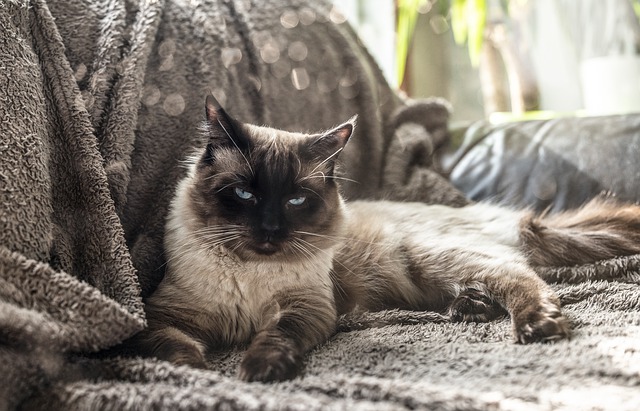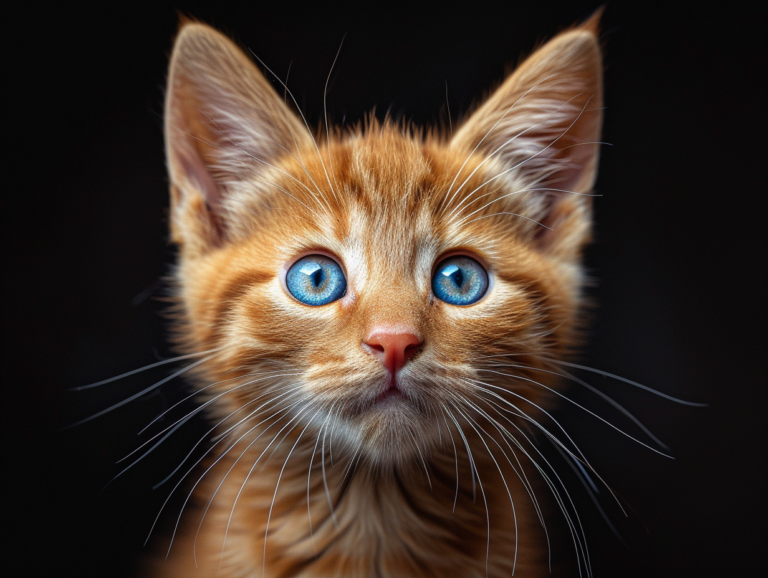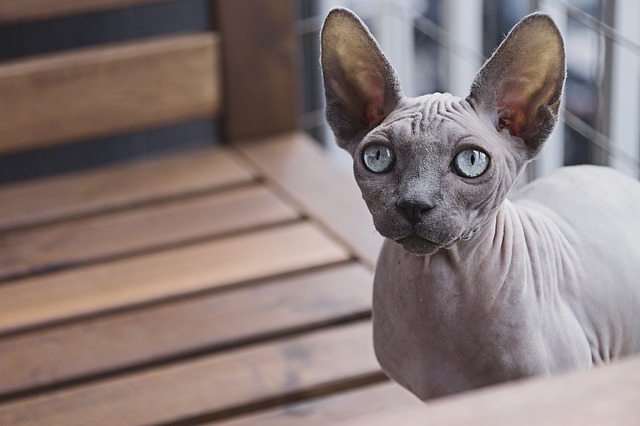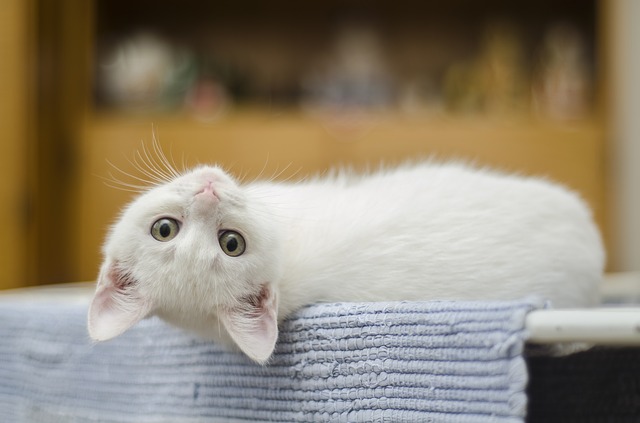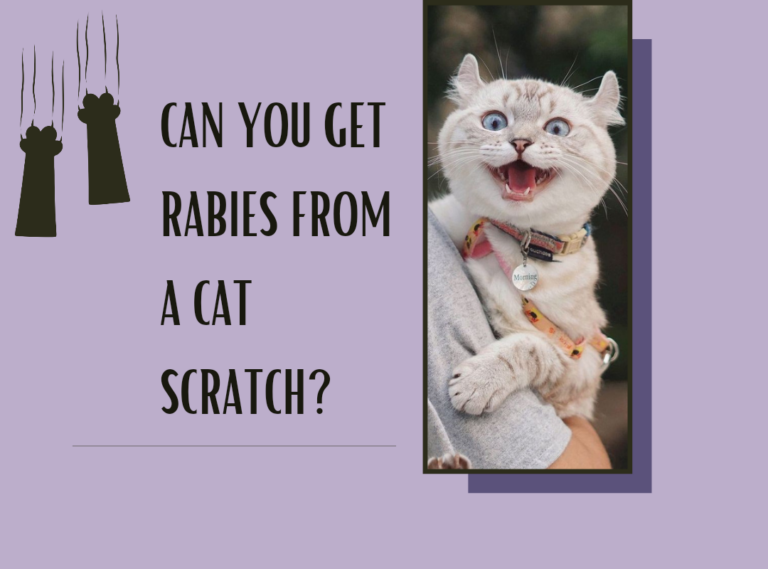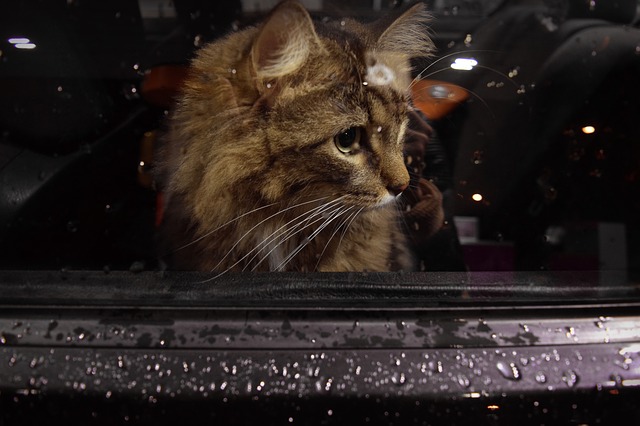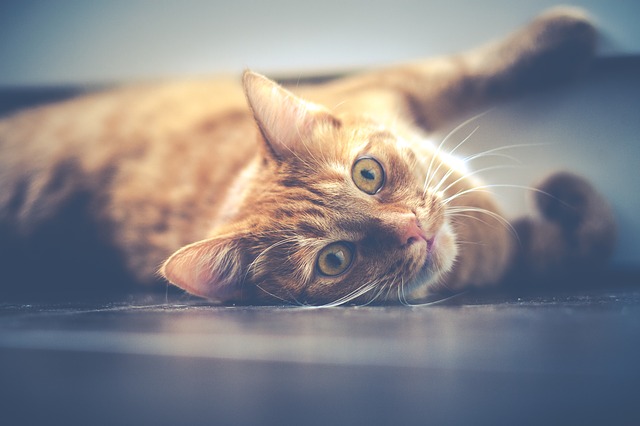How to Stimulate Bowel Movement in Cats
I’ve written about
If you’d like to find out how to stimulate bowel movement in cats, keep on reading!
How to make a cat poop when constipated
Increase exercise
Exercise naturally stimulates bowel movements in cats and people alike. This is why outdoor cats are less predisposed to constipation than indoor ones.
You can ensure that your
Keep in mind that cats need daily play to remain happy, and also to prevent certain mental problems, including depression and dementia (in geriatric cats).
Make sure your cat is drinking enough water
Cats aren’t best-known for their huge appetite for water, and this can create an array of problems.
Pets that don’t get enough water have a higher risk of developing urinary health pathologies.
Plus, if your
Investing in a quality
Another good idea is to begin feeding your
Minimize stress
Some cats can be stressed by a wide range of factors from being rehomed to sitting alone at home for many hours in a day, without having any entertainment opportunities.
In my experience, white, geriatric, and scaredy cats are more predisposed to constipation. I can’t tell you how many times I’ve performed enemas on old, white cats while I was practicing!
Also, white cats are also generally more fearful than others especially since they also usually don’t hear that well.
Make sure you change the litter on a regular basis
If you don’t clean the litter box as often as possible, your feline buddy is going to hold it in (both number 1 and number 2), which can lead to severe constipation, but also to urinary tract infections.
If you don’t think you have enough time for cleaning your
Give your cat probiotics
If your
Giving your cat probiotics can help prevent a variety of diseases, and they’re also harmless, so they aren’t going to put your pet’s health in danger in any way.
Please refrain from using human probiotics on your
Use a stool softener for cats
There are lots of products that can help a
Some of them are very easy to administer and can even come with flavors that cats actually enjoy (they might smell and taste like meat or salmon, for example).
By the way, you can also use fish oil (which contains a good amount of omega 3, a healthy supplement for cats) to stimulate bowel movements in cats, but only small quantities should be used.
Some of my personal favorites in terms of stool softeners for cats are the following:
- Vetoquinol Laxatone (this one’s excellent!)
- Lax’aire by Pfizer
- Cat Lax
- Tomlyn Laxatone
- Pet Wellbeing Natural Constipation Support
Ask your vet what human laxatives are safe for cats
I’ve written about this before but one good example of what a safe human-grade laxative can be for cats is Miralax.
Ask your veterinarian what other options you have available — there aren’t that many, unfortunately.
Also, since geriatric cats have a much higher chance of having constipation problems than younger ones, make sure you take your feline companion to the vet clinic for vet check-ups at least twice a year.
And get pet insurance, especially after your
How vets stimulate bowel movement in cats with medication
In severe cases of constipation where the animal doesn’t seem to respond to any of the changes we’ve previously mentioned, your vet will have to perform an enema.
Since the procedure is rather complicated and painful and most cats really don’t like it, it can be performed under general anesthesia.
As you can imagine, general anesthesia is not recommended more than 2-3 times a year, which is why your vet can’t give your
Your vet can use antispastic medication and veterinary laxatives, but you will also receive the recommendation to switch your
Some pouches of
Usually, these products are considered treats, but you can feed them as your
How to tell if your cat is constipated
It can be difficult to tell if your
Most cats that try to defecate and can’t are going to use the litter boxes time and again without achieving any result.
If you hear your feline buddy ‘going to the bathroom’ several times in a row and then she begins to meow without any particular reason, you should check the litter and see whether there’s any poop or not.
If there isn’t, change the litter and then wait to see what happens. Play with your
If you have nothing to collect from the litter box feces-wise two or three days in a row, your
Also, some cats lose their appetite as a result of having a lot of room occupied in their abdomen by the feces — so they’ll eat less. That can’t be good, right? So you should take your
Is cat constipation an emergency?
If your
The longer you wait, the higher the likelihood that your vet is going to perform an enema instead of just prescribing medication to stimulate bowel movement in cats!
